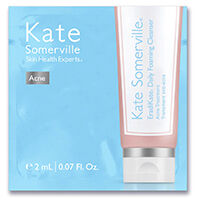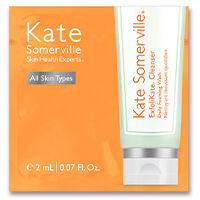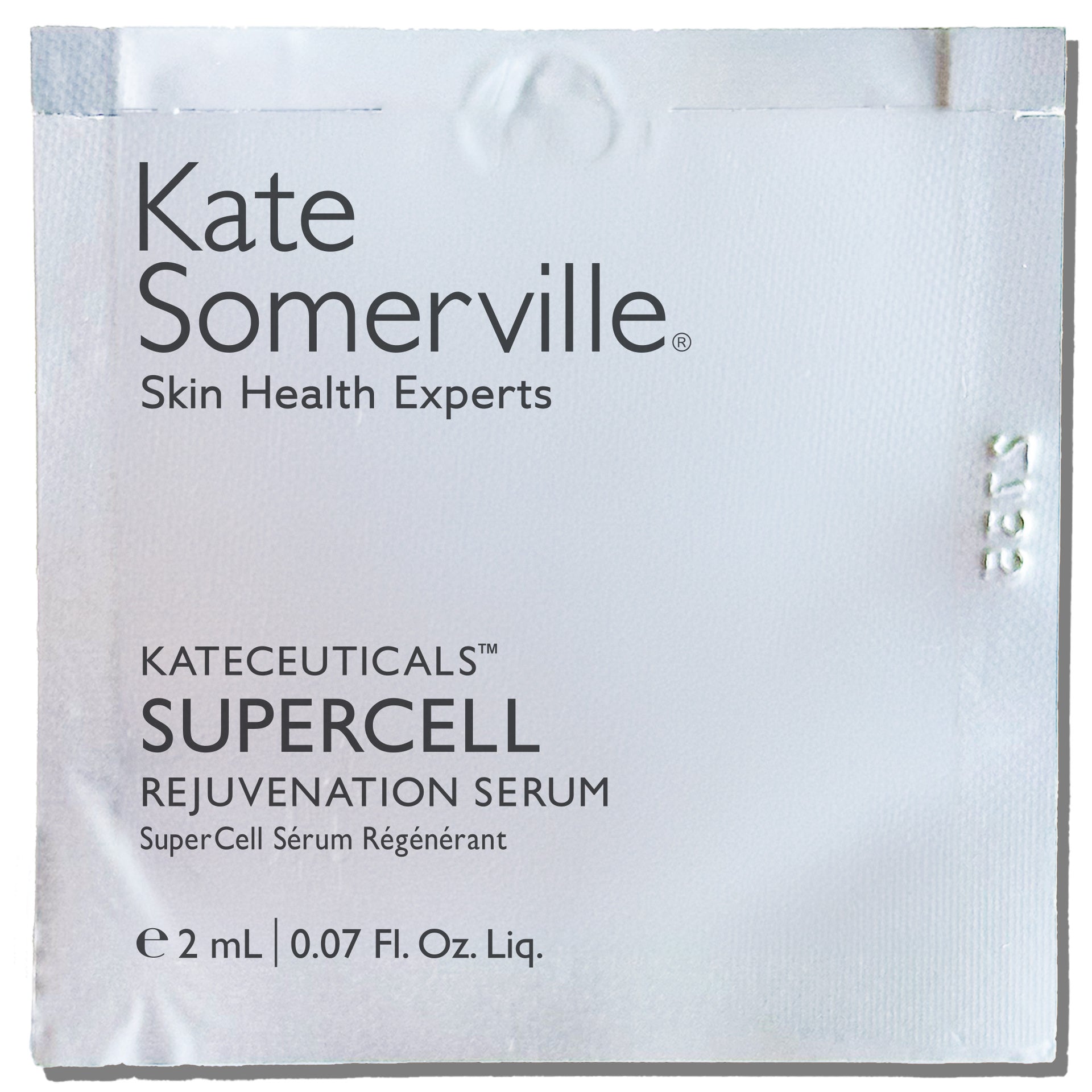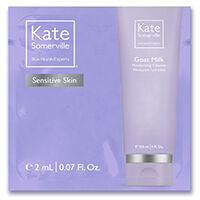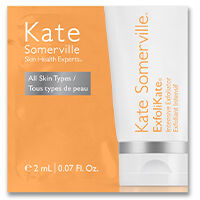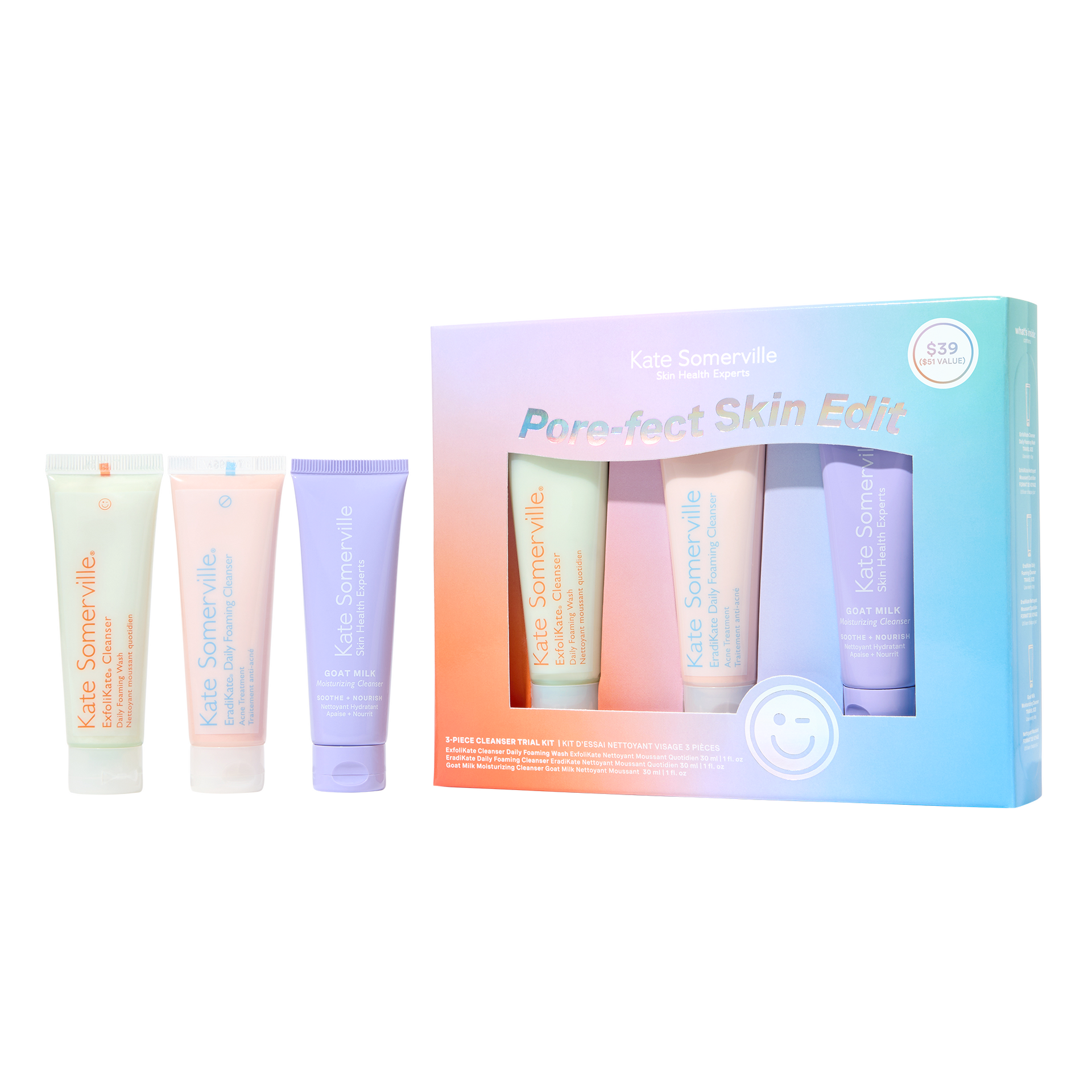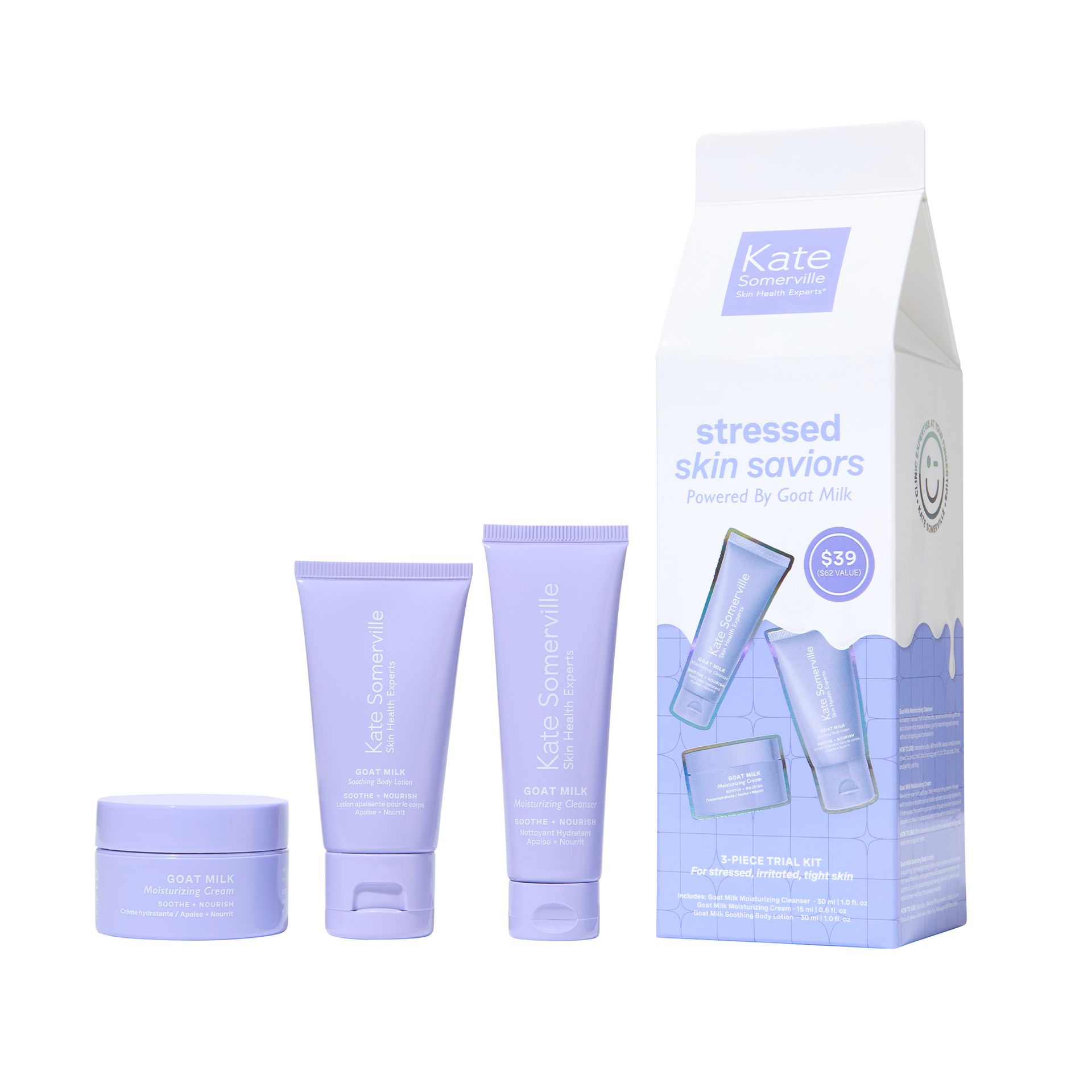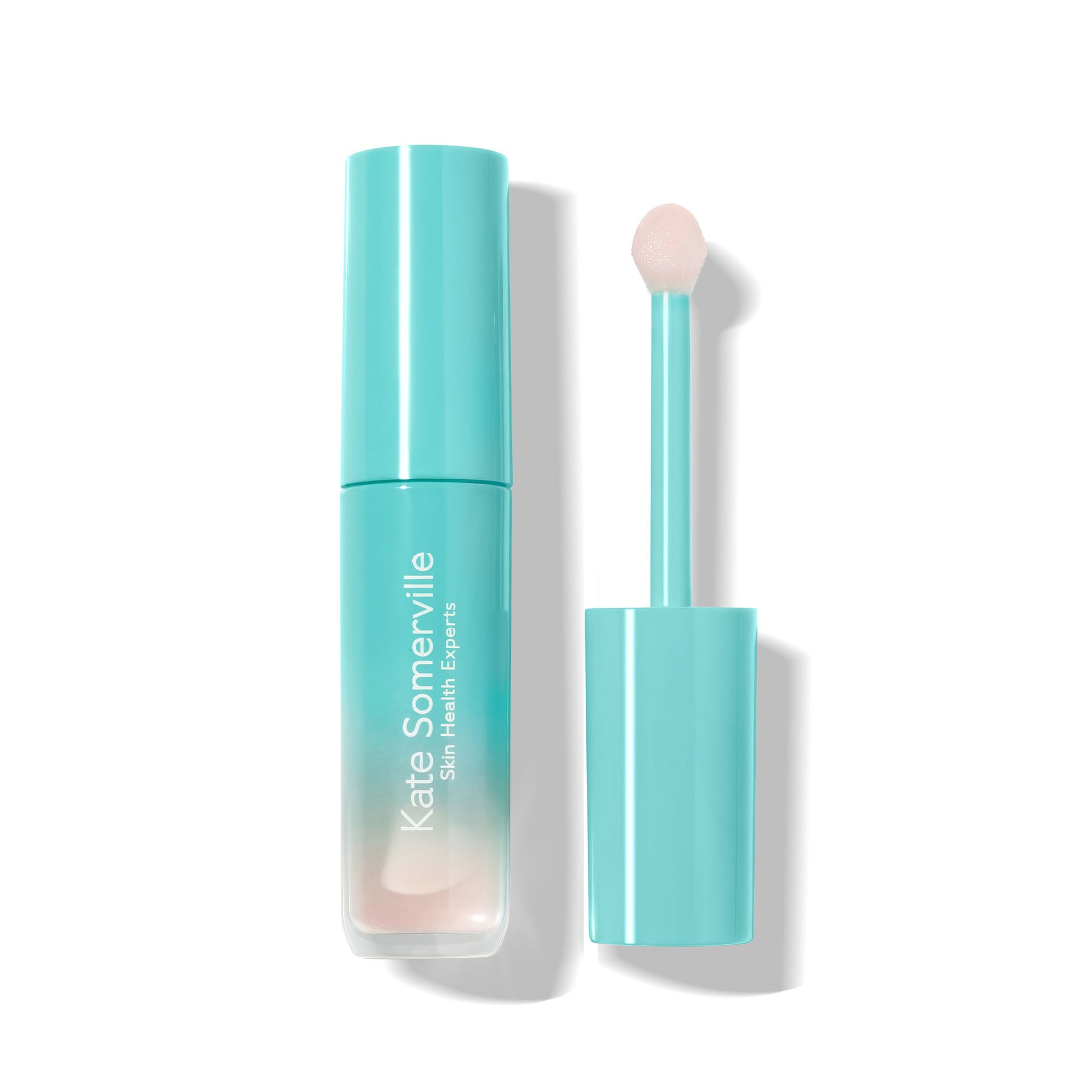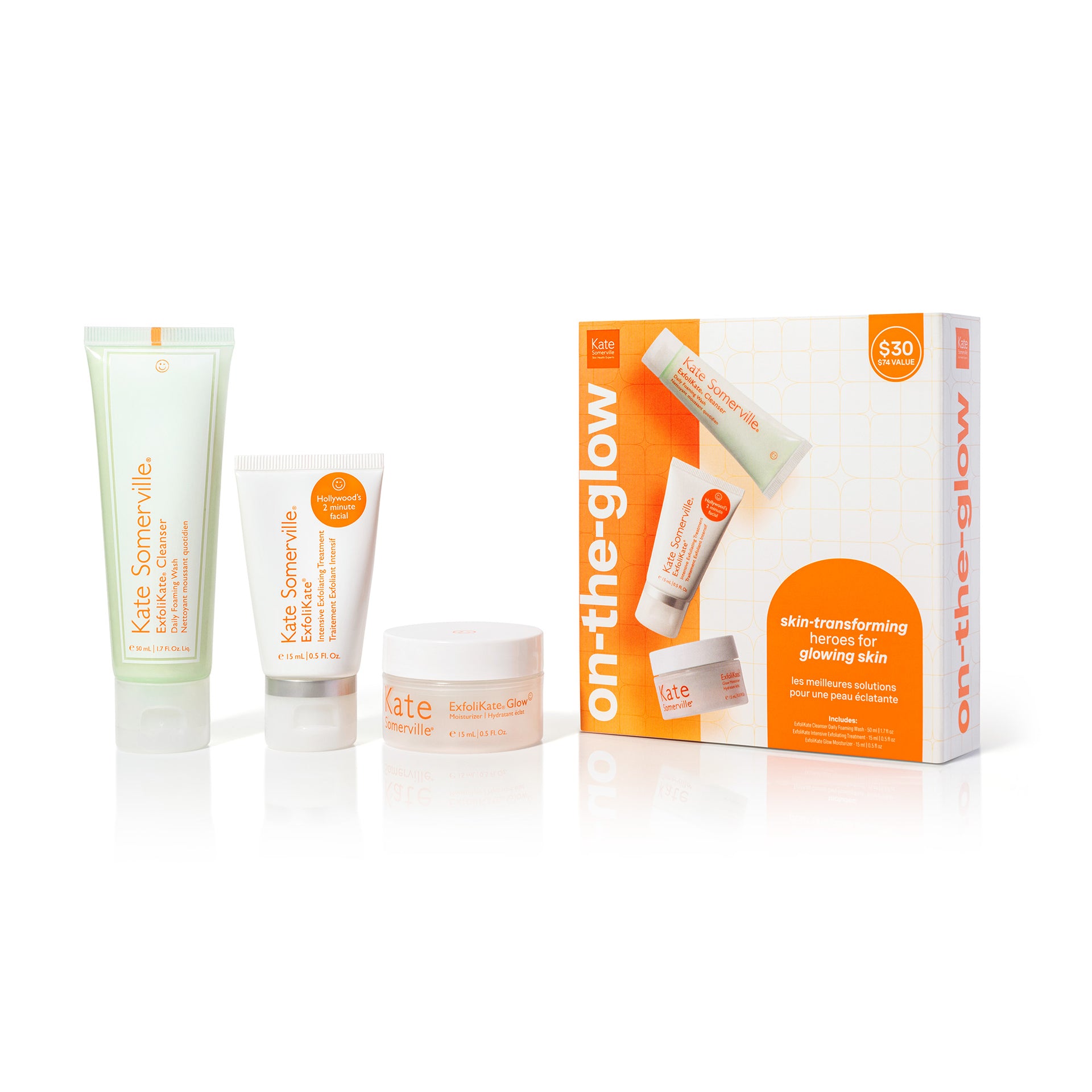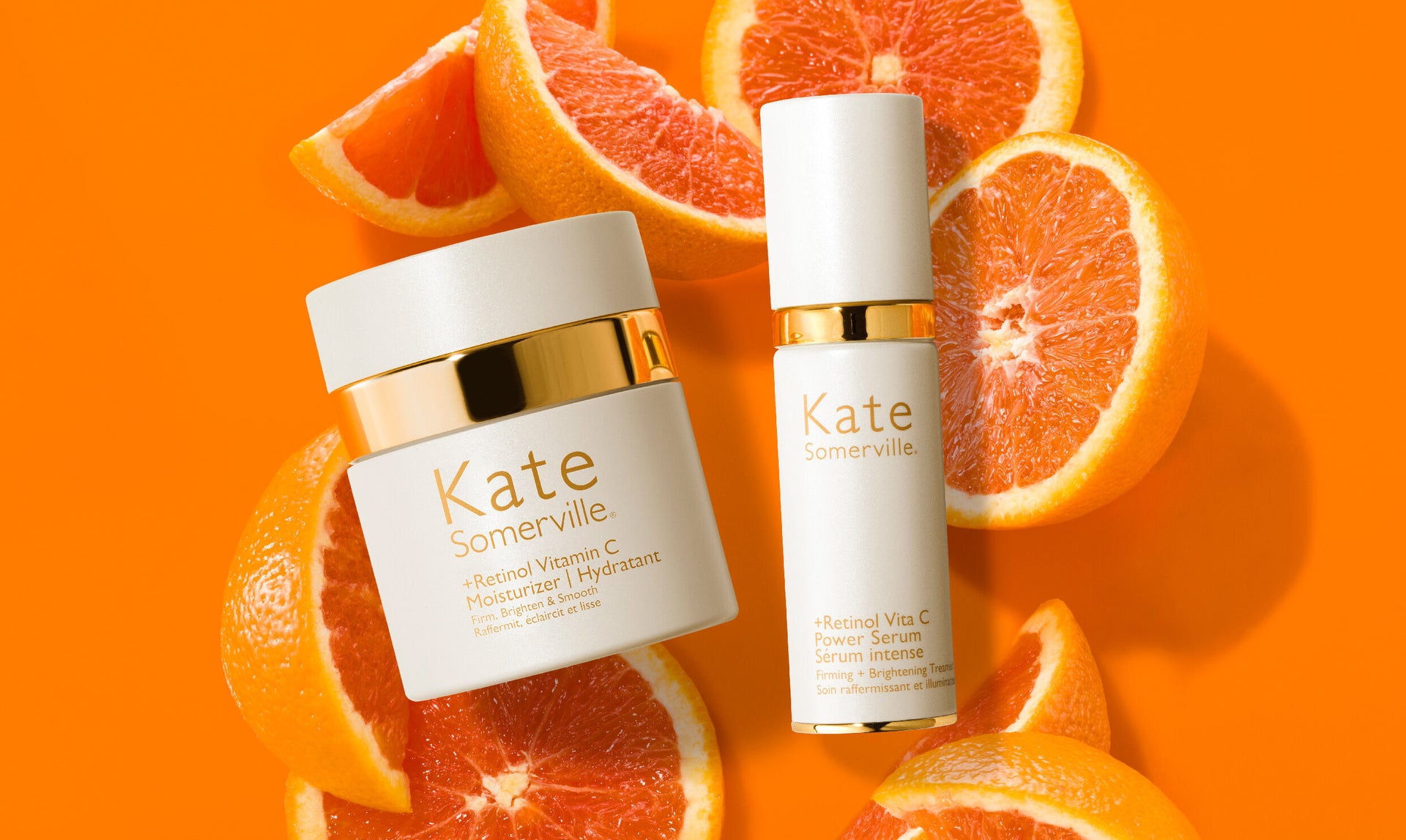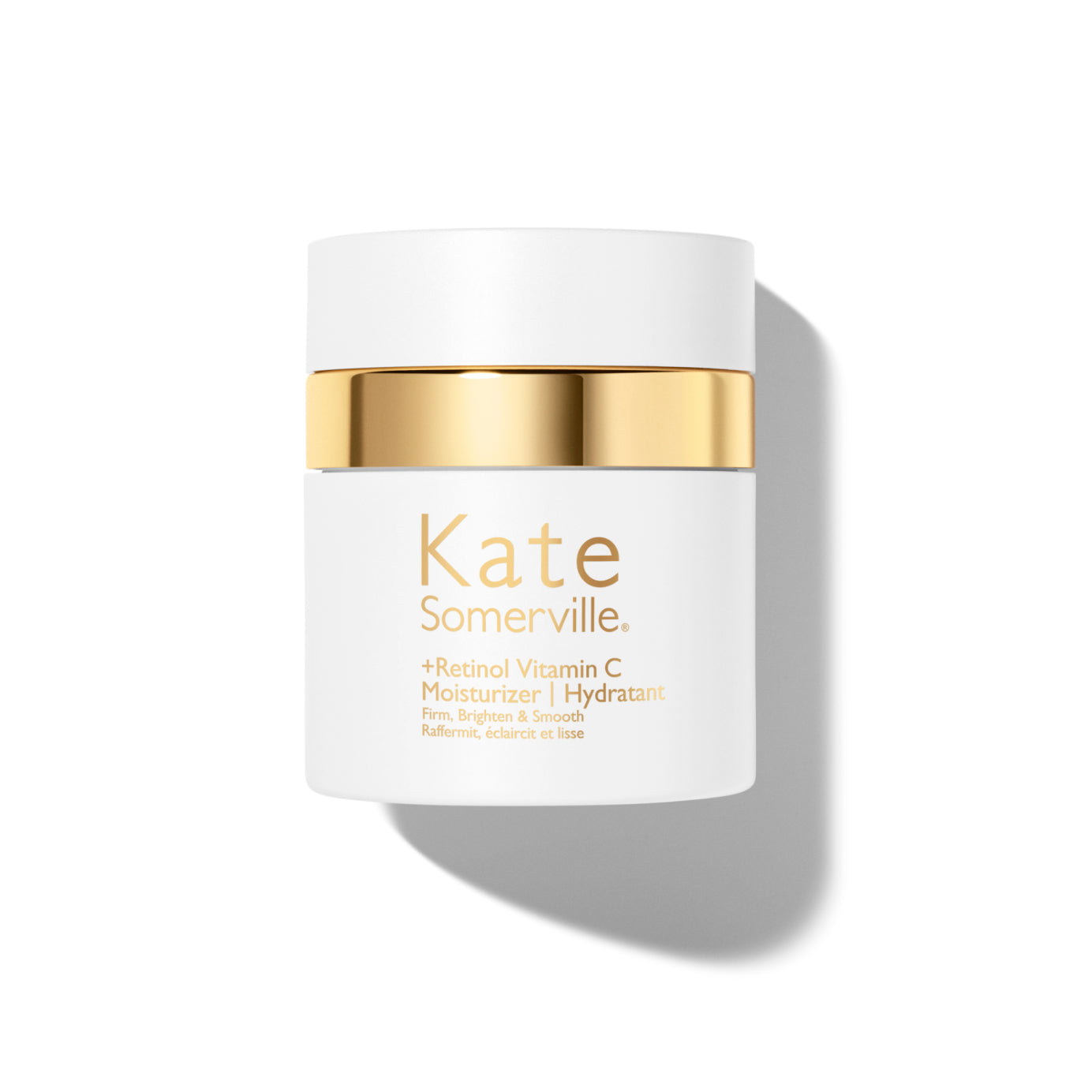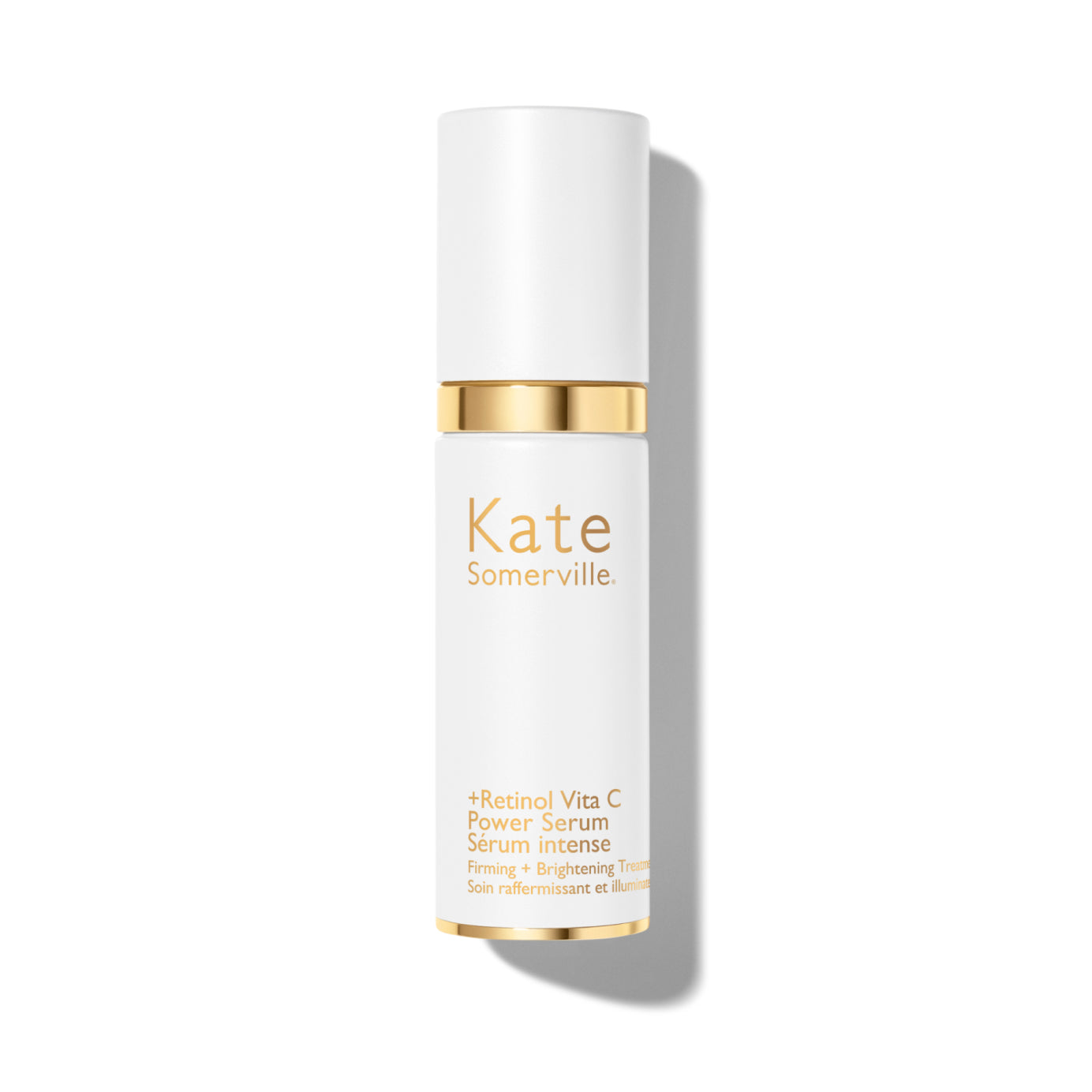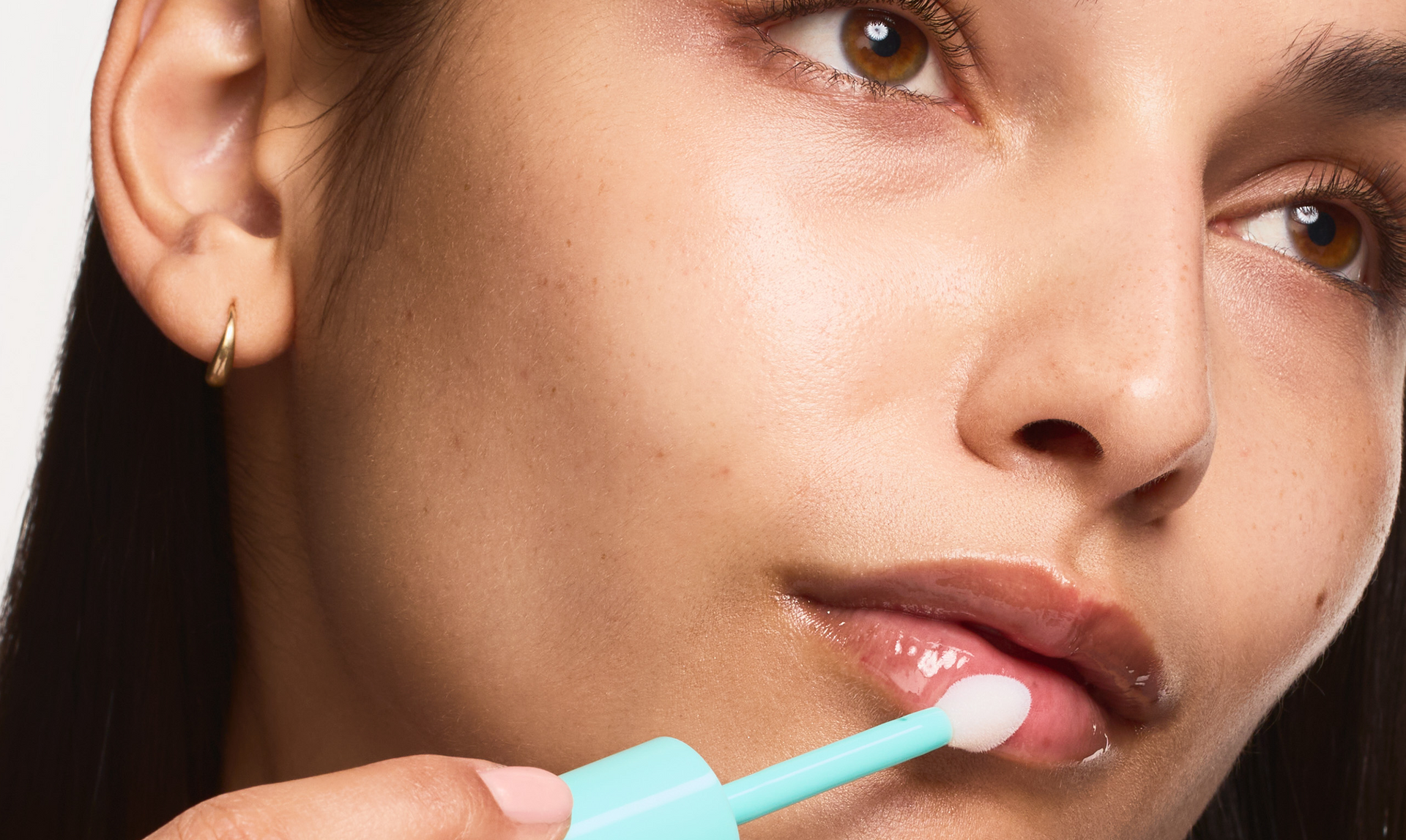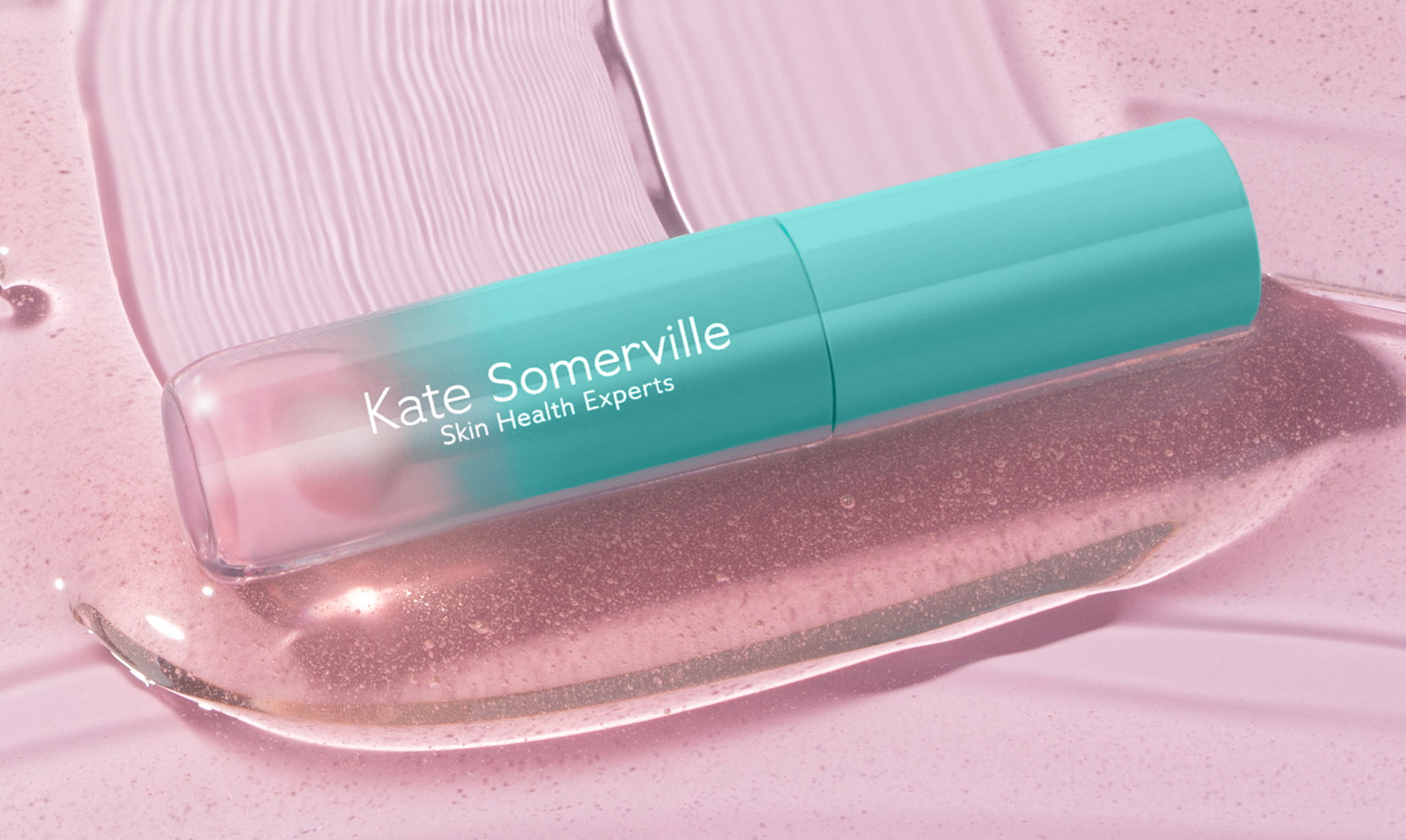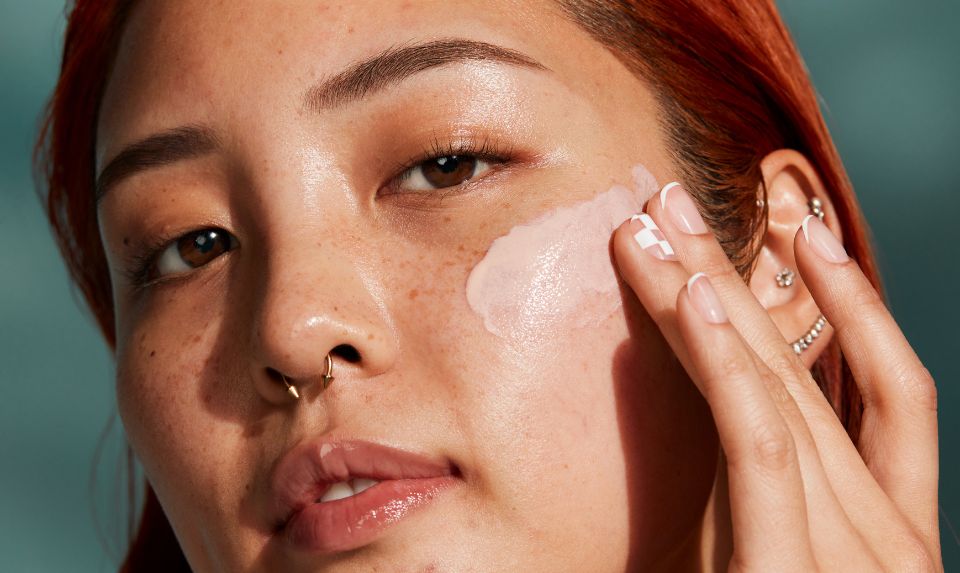At Kate Somerville, we’re Skin Health Experts with a passion for educating our clients about their skin and diligently working with them to find the best products for their unique skin needs. Every day in our clinics and online, we talk to customers who have questions about specific ingredients or products they have heard about in the media. Can a single product or ingredient really be as powerful as their coworker suggested or a marketing campaign promised? The truth is, there’s a lot of misinformation currently available when it comes to drug store or premium skincare products, ingredients and treatments, so many of these conversations consist of our estheticians and nurses dispelling myths. However, every so often there comes a product that boasts such a powerful formula that it even catches our attention.
Thanks to the many benefits of vitamin C serum for the face, this product has taken the beauty industry by storm and gained a loyal following. Tons of varieties of vitamin C serums are hitting the market, each with their own list of ingredients and promised benefits, leaving many consumers pondering how to choose which one to incorporate into their skincare regimen.
Benefits of Serums
Vitamin C benefits your skin care routine in many ways, and that’s especially true when it’s in the form of a serum. While vitamin C can come in a variety of product forms, serums are known to be more concentrated and potent. So, if you are thinking about choosing a serum to add to your routine, it is essential that you understand what actually makes them different from other products and how to use them properly if you want to take advantage of this ingredient’s powerful effects.
Serums are a standout skincare product because they use ingredients that aren’t as heavy as those found in other products. These lightweight formulas deliver active ingredients deep into the skin as they can absorb and penetrate faster than their heavier counterparts. Plus, serums contain much higher concentrations of active ingredients, allowing you to see results at a faster rate compared to heavier products like moisturizers or other treatments. This speed of visible change is one of the primary reasons serums have garnered so much attention.
With so many options available, selecting a serum can be a bit tedious and overwhelming. One of the first things to remember is that just because a product is expensive does not mean it’s the best for your skin. Rather than relying on the marketing buzzwords displayed on packaging, familiarizing yourself with the ingredients that will deliver the greatest effects to your skin type is important. Antioxidants, for example, are great for anti-aging while anti-inflammatory ingredients can help neutralize redness and smooth uneven skin. If you are looking to protect your skin, hydrating ingredients will strengthen the skin’s barrier against the environment.
Depending on the ingredients and your skin type, serums can generally be applied both morning and night as part of your regimen. As Skin Health Experts, we recommend you use a serum after cleansing, exfoliating and hydrating skin, but before you apply a moisturizer and/or sunscreen.
Applying a serum to skin that’s cleared away surface debris through exfoliation and is plumped with hydration helps the serum get deep into the skin without any barriers. However, trying to mix potent serums can have adverse skin reactions depending on the product’s active ingredients. If you have sensitive skin or specific conditions like eczema or rosacea, you may be better off skipping serums entirely. Again, the high concentration of active ingredients could cause further irritation and inflammation, exacerbating the symptoms of those conditions.
Finally, as you begin to incorporate a serum into your routine, try to remember the old adage: less is more. We find that because of its lightweight formula, many of our clients want to use more product than they actually need to. In fact, overusing a serum could lead to irritation (again, because of the high concentration of ingredients). Generally, a dime-sized amount of product is enough to cover your face and neck, but it is always best to carefully read the application instructions on the packaging.
Now that you have a deeper understanding of what a serum is and why it is used as part of a complete skincare routine, we can focus on those serums featuring vitamin C specifically. Although one product can’t give your skin everything it needs, vitamin C serums come close thanks to the sheer number of benefits they provide.
Benefits of Vitamin C Serums
Vitamin C is an antioxidant that naturally occurs in the body which helps to form and maintain connective tissue, such as the skin. Though it is found in a variety of foods, like oranges and other citrus fruits, it can provide a range of benefits to the body as a whole. Here are some of our favorite benefits of vitamin C for the skin.
Protecting
You’ve probably heard of free radicals - those pesky, unavoidable molecules floating through the air that become harmful to the skin when exposed to environmental pollutants like smog, dust, cigarette smoke, and even sunlight. As they come into contact with our skin, free radicals can wreak havoc, causing dark spots, wrinkles, sagging and other signs of aging. Thankfully, the antioxidant properties of vitamin C can help protect against this damage by neutralizing free radicals.
Additionally, vitamin C can help protect against ultraviolet (UV) photodamage on the skin. By essentially helping to strengthen the skin’s natural barrier, vitamin C prevents UV rays from penetrating deeper into the layers of the skin. While it may help to strengthen your skin’s protection, vitamin C is not a substitute for a daily face sunscreen. Sun protection in the form of SPF is essential as it protects against harmful UVA and UVB rays which are known to cause premature signs of aging as well as contribute to the rising cases in skin cancer.
Anti-Aging
As we age, the natural stores of our structural protein known as collagen begin to deplete. Primarily responsible for holding skin cells together and providing a framework within the skin, fading levels of collagen contribute to sagging skin and wrinkles. Using a vitamin c serum acts as a jumpstart to the skin’s structure, helping to even out skin tone and smooth out fine lines and wrinkles while adding volume to your face.
Brightening & Evening
Vitamin C can also be used as a gentle exfoliant to help slough away dead skin cells. This is how vitamin C is able to reveal a brighter, more even glow. Over time and with regular use, this type of effective exfoliation can help reduce the appearance of brown spots, sun damage, and discoloration.
Choosing Vitamin C Products
Vitamin C seems like an ingredient that would be easily recognized on a product label, but there are actually a few different varieties manufacturers use in the products they sell. Understanding the distinctions between them can help make sure you are selecting the product that will work best for your skin. The most popular form of vitamin C in skincare is ascorbic acid. This acid is the most potent form of the vitamin when applied to the skin and can be absorbed quickly. Magnesium ascorbyl phosphate (MAP) is the other form of vitamin C most often seen on labels. A derivative of the vitamin, MAP is water-soluble which allows it to be more effective even at lower doses. Both of these variations of vitamin C are high-quality and indicate the product you are purchasing is accurately representing any benefits associated with vitamin C.
When choosing a vitamin c serum, don’t just pay attention to the form of vitamin c in the product. Also be aware of the other active and inactive ingredients. As a skincare ingredient, vitamin C can be quite volatile and quickly destabilize if it is exposed to oxygen or sunlight. Look for products that also list a stabilizing ingredient, such as vitamin E or ferulic acid, to help extend the longevity of your serum while also providing additional benefits. Specifically, vitamin E helps to protect against and minimize the effects of harmful free radicals while ferulic acid, on the other hand, helps enhance vitamin C’s UV protective abilities.
Limiting the serum’s exposure is also critical to keeping the vitamin C stabilized. Look for packaging that is opaque or brown in color. Also go for a pump that is able to restrict the product’s exposure to oxygen.
Due to the variety of vitamin C formulas currently available, you may have to spend some time experimenting to find the right product for your skin. Those with sensitive skin may benefit from selecting a product with minimal ingredients as it limits irritation. If you do experience adverse side effects, simply discontinue use and try a new formula or variety of vitamin C. With some patience, you will be able to find a great product that delivers results to your skin.
Not sure which topical vitamin C serum to start with? Check out Kate Somerville’s +Retinol Vita C Power Serum which combines the power of vitamin C with anti-aging powerhouse retinol for an effective formula that will leave your skin glowing.
Sources:

